October 30, 1974: The legendary Rumble in the Jungle between Muhammad Ali and George Foreman in Kinshasa, Zaire. More than a fight, this event became a symbol of hope and African pride, marking a historic and cultural turning point for people of African descent worldwide.
More than a fight, a symbol for Africa and America
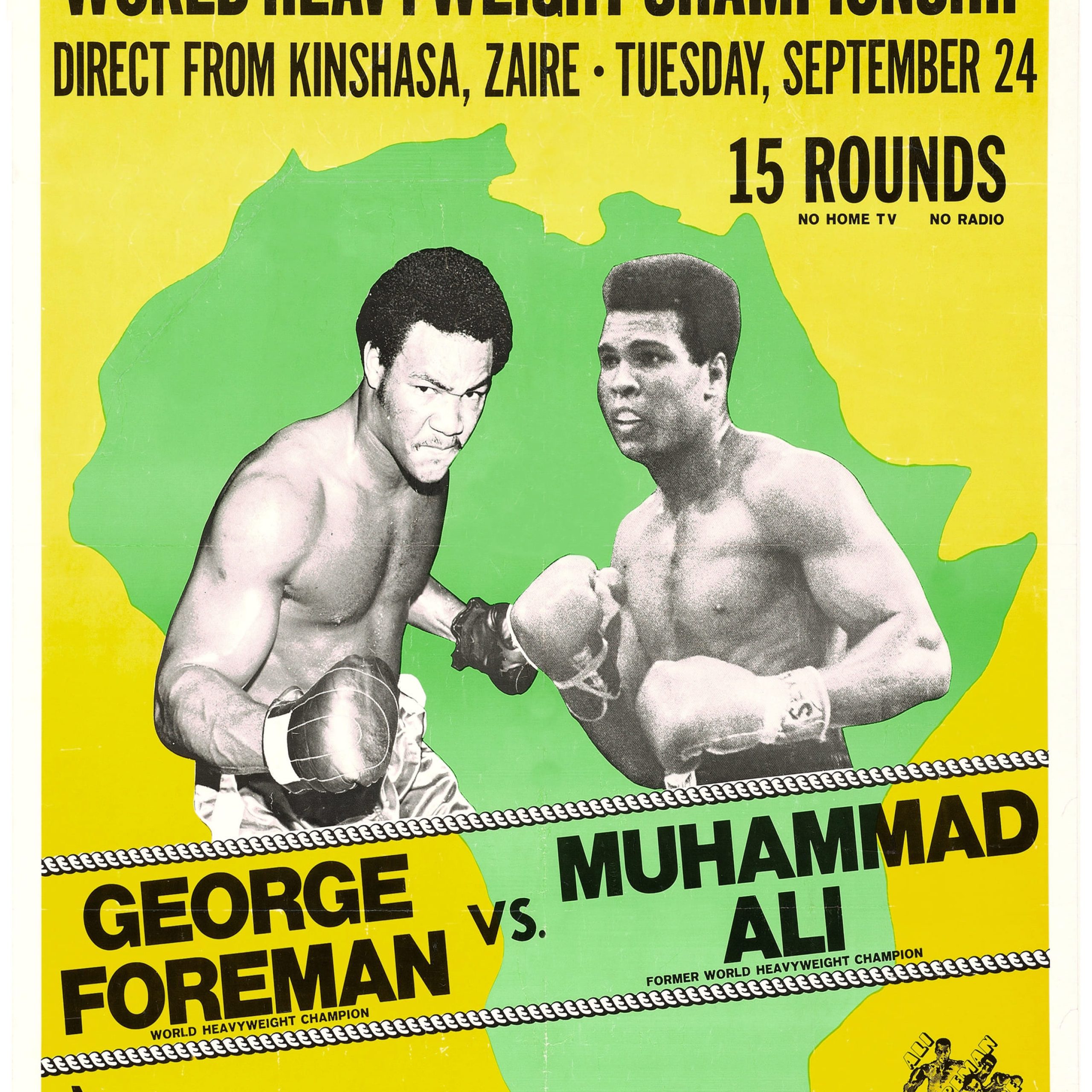
In October 1974, under the sweltering heat of Kinshasa, Muhammad Ali, the “Greatest,” faced George Foreman in what would become the “Rumble in the Jungle.” But to truly understand the impact of that night, one must go beyond the ring—to the hearts, the gazes, and the hopes of those for whom Ali represented far more than a mere boxer. At its core, Kinshasa was more than a place; it was a meeting point between the African continent and African-American struggles, between aspirations of freedom and the scars of a colonial past. Ali was not alone in this fight; he carried within him the hopes of those who, in one way or another, also fought for their dignity.
The road to Kinshasa
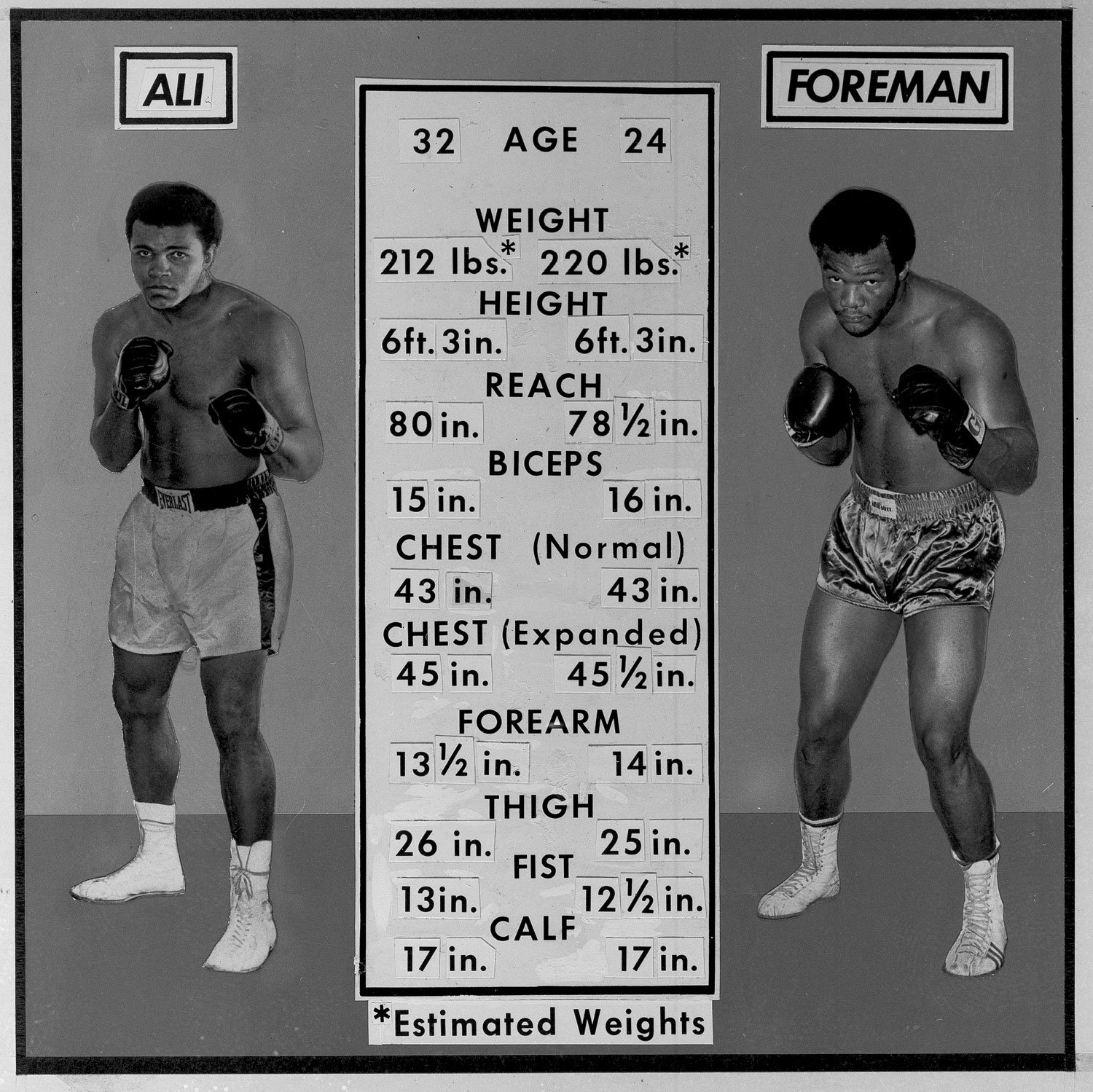
Before this match, Ali and Foreman had never faced each other, but the trajectories of these two men converged toward this night in Africa. Foreman, the undefeated and destructive champion, dominated his era with sheer power. For many, he symbolized an invincible force, a mountain that even Ali, the weary warrior, would not be able to climb. Opposite him was Muhammad Ali, a figure embroiled in causes and controversies, who had refused military service in protest against the Vietnam War, resulting in suspension and being stripped of his title. Ali had come a long way, worn but determined to reclaim his crown and prove that he was the true people’s champion.
The fight was orchestrated by sports mogul Don King, but the stage was set by Zairian President Mobutu Sese Seko, who wanted to make this fight an international showcase for his regime. Kinshasa, a city marked by colonial history and independence struggles, became a symbol where boxing intertwined with the narratives of freedom and reclaimed dignity.
Ali Boma Ye!
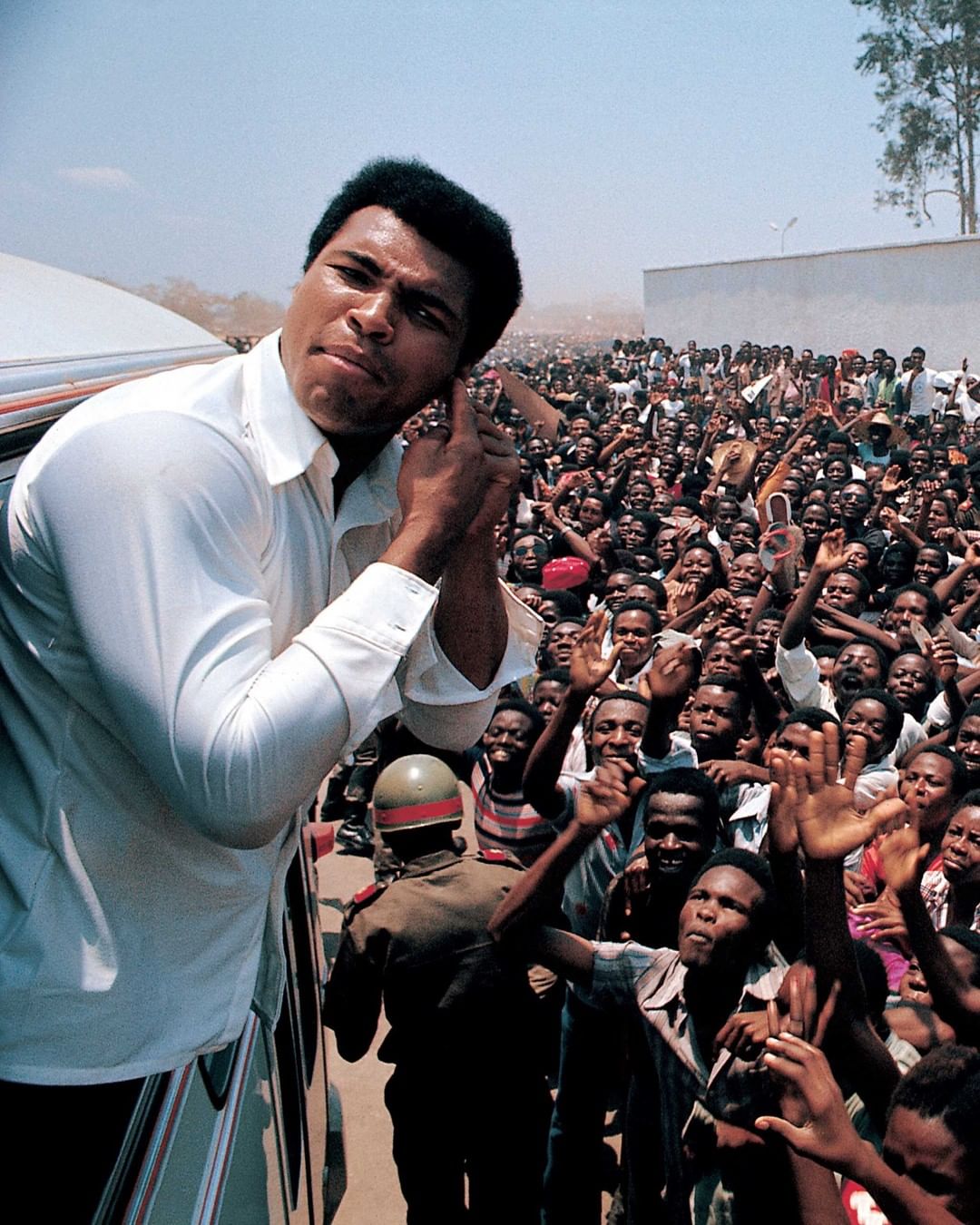
Before the fists collided, the African crowd had chosen its champion: Ali, the man who embodied Black pride and the fight against oppression. Among the crowd, voices rose, chanting: Ali, boma ye!—“Ali, kill him!” These words were not simply inciting violence but were a heartfelt cry, an expression of unwavering support. They saw in Ali a brother in struggle, someone who, like them, had known the yoke of discrimination and injustice.
George Foreman, in contrast, was a feared yet misunderstood warrior. He arrived in Kinshasa with two German shepherds, symbols for the Zairians of the dogs used by Belgian colonial forces to oppress the Congolese. Thus, he unintentionally became Ali’s antagonist, his power transformed into a symbol of oppression in the collective imagination.
The Rope-a-Dope strategy
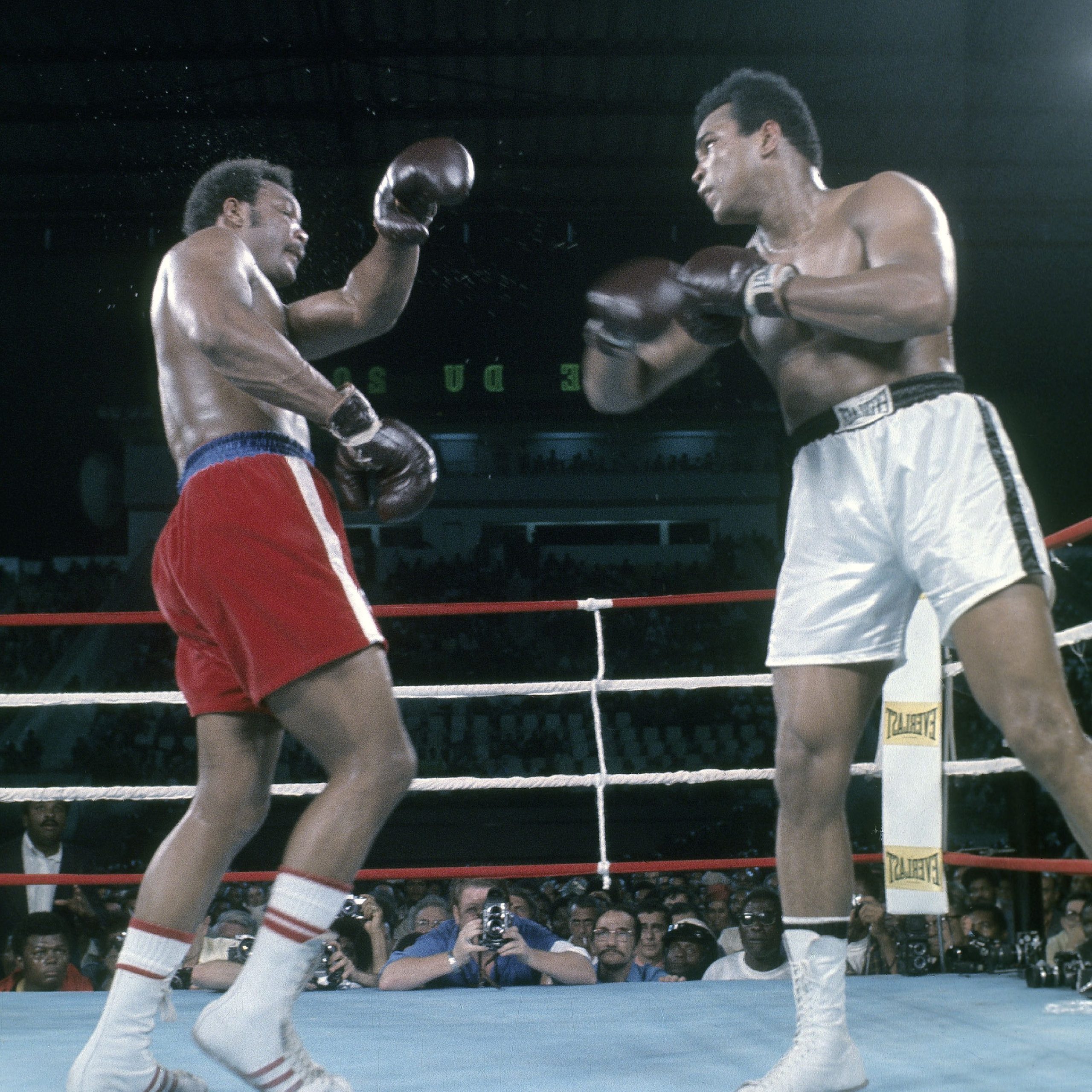
As a strategist, Ali didn’t just punch; he created, he innovated. On the night of the fight, Ali adopted a tactic that defied all boxing conventions: the “rope-a-dope.” Instead of dancing around Foreman, as he had with other opponents, Ali leaned against the ropes and let Foreman hit him repeatedly. This strategy seemed suicidal, but Ali knew that Foreman, with his powerful yet exhausting punches, would eventually wear himself out.
Ali endured, absorbing blows like a tree bending in the wind. He didn’t just box; he endured, standing firm in the face of brute strength, reaffirming the resilience and resistance of those he represented. Gradually, Foreman grew tired, his breathing became labored, and the strength that made his opponents tremble became his weakness.
The fall of a colossus and the rise of a legend
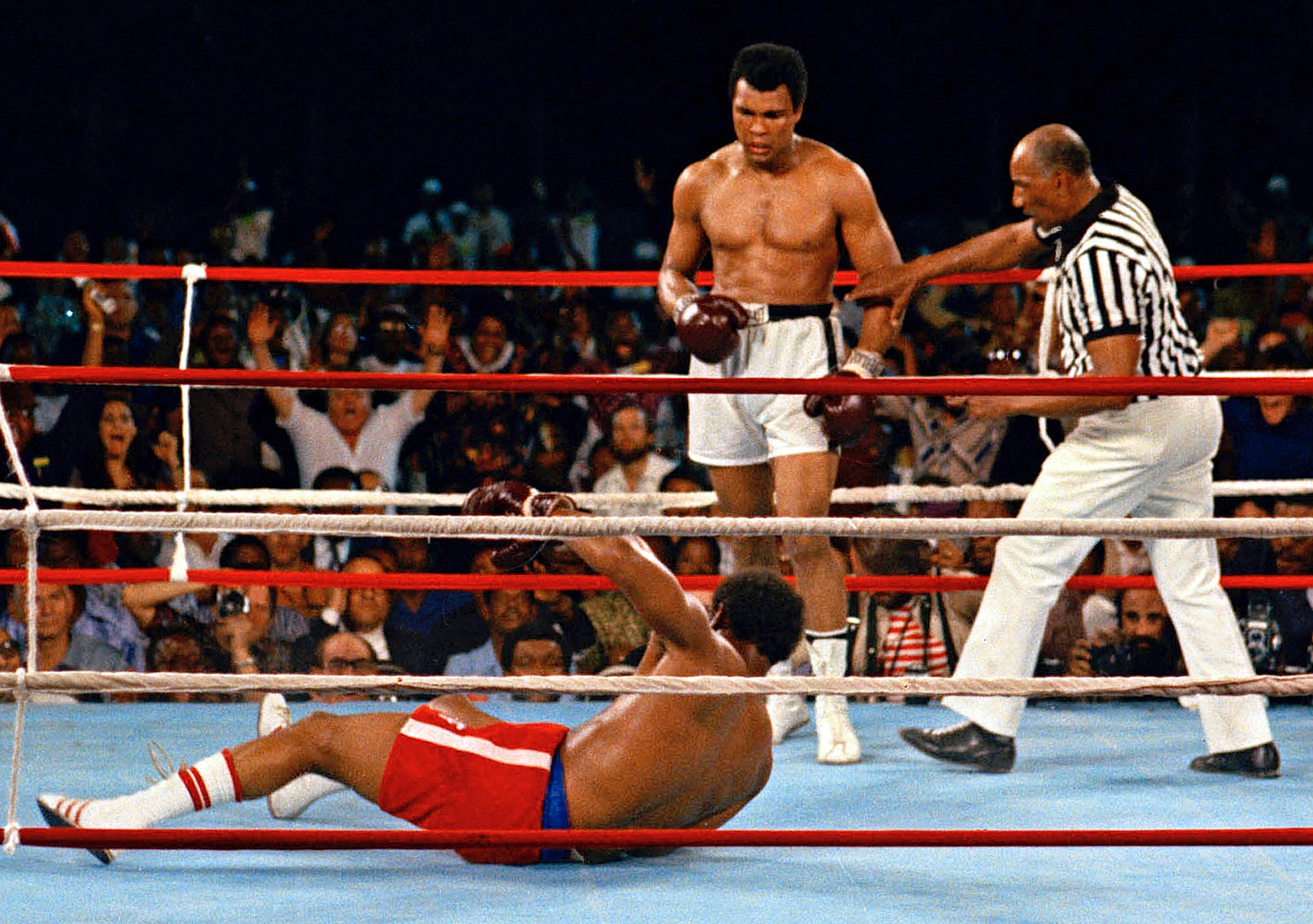
In the eighth round, Foreman, exhausted and disoriented, received a decisive blow. Seeing his opponent’s weakness, Ali launched a series of rapid attacks, culminating in a hook that sent Foreman to the ground. Kinshasa erupted in cheers and applause, the voices of thousands of spectators joining in a collective shout of victory, not just for Ali, but for an entire continent.
Ali had just toppled a giant and won the hearts of a generation. Foreman, a dethroned champion, understood in that moment that he had not only lost a title; he had lost to a man whose strength went far beyond his fists. In becoming champion again, Ali redefined what it meant to be a hero for people of African descent, a spokesperson for those fighting for recognition.
Beyond the ring
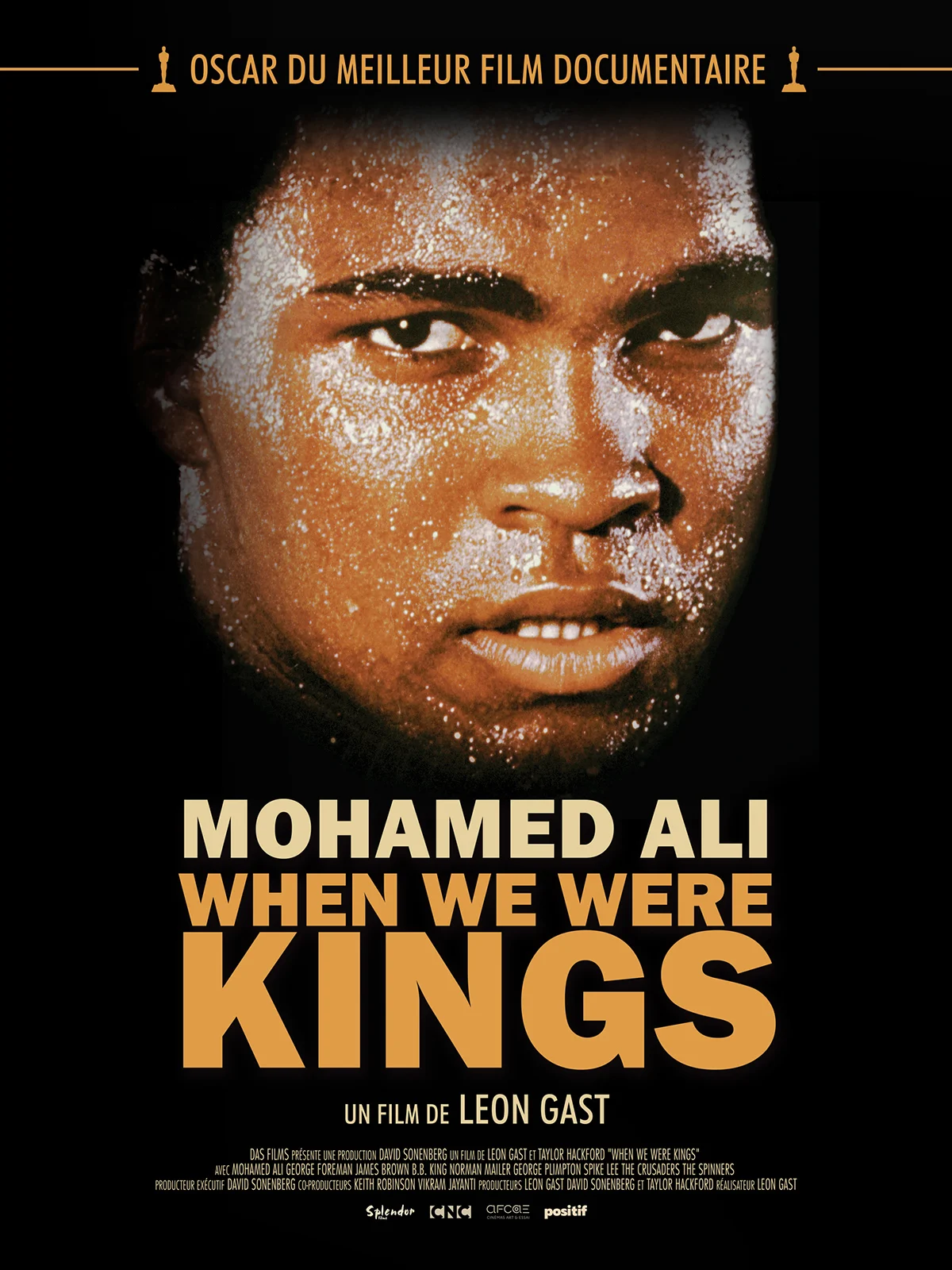
The Rumble in the Jungle was not just a sporting victory. This fight marked a turning point in history, a moment when the world saw Africa as the stage for a grand and unifying event. Ali became a living legend, a model of courage and ingenuity that transcended boxing to reach political and cultural spheres.
Ali’s victory, immortalized in the documentary When We Were Kings, became a cornerstone of African-American and African history. More than a match, it was a lesson in humanity, a reminder that true champions are those who carry their communities and transcend their individual struggles to represent something greater.
Ali, the people’s champion
Even today, the Rumble in the Jungle is considered one of the greatest sporting moments of the 20th century. But for those who lived it or who have heard its echoes, it remains above all an ode to freedom and dignity. In facing Foreman, Ali didn’t just prove his worth; he revealed to the world the power of a man who does not yield, a people who persist, and a continent that refuses invisibility.
The path Ali paved that night belongs to all who refuse fate. He embodies the spirit of those who, despite the blows and obstacles, rise beyond their limits. Ali will be remembered not only as a boxing champion but as the people’s champion.
Notes and references
- “The Rumble in the Jungle“, National Geographic, 2022.
- Norman Mailer, The Fight, 1975.
- When We Were Kings (Documentaire), réalisé par Leon Gast, 1996.
- Paul Bauman, The Legacy of the Rumble in the Jungle, Sports History Quarterly, vol. 29, 2021.
- David Remnick, King of the World: Muhammad Ali and the Rise of an American Hero, 1998.
- John McGrath, “A Cultural Perspective on the Rumble in the Jungle,” Journal of African Studies, 2020.
